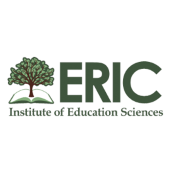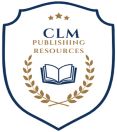Submissions
Submission Preparation Checklist
All submissions must meet the following requirements.
- This submission meets the requirements outlined in the Author Guidelines.
- This submission has not been previously published, nor is it before another journal for consideration.
- All references have been checked for accuracy and completeness.
- All tables and figures have been numbered and labeled.
- Permission has been obtained to publish all photos, datasets and other material provided with this submission.
Articles
Section default policyPrivacy Statement
Articles
Section default policyCopyright Notice
As part of the Open Access Journal Initiative for the Global Exchange of Knowledge, readers are freely allowed to download, read, and print the full text papers of Historicus without prior permission from the PHS or the author, as long as they acknowledge/cite Historicus as the original source. Research papers submitted to IJITC should be original and should not be under consideration by some other publisher at the same time. Authors warrant that they are the sole owners of their research work and that their submission is not an infringement of any copyright, trade secret, or other proprietary rights and will indemnify the society for any breach of such warranty.
Privacy Statement
The names and email addresses entered in this journal site will be used exclusively for the stated purposes of this journal and will not be made available for any other purpose or to any other party.
Publication Ethics
Publication ethics guidelines exist to guarantee high-quality research publications, public confidence in scientific discoveries, and credit for their study and ideas.
Article Assessment
All manuscripts are subject to peer review and should follow academic performance requirements. The submissions shall be accepted by peer reviewers, whose names remain confidential to their authors, as authorized by the publisher. Our editorial team will periodically pursue guidance on, for example, serious legal, security, biosecurity, and/or society implications outside of regular peer review. Before deciding on suitable measures, we can contact experts and the Academic Editor, including hiring reviewers with special experience but not limited to evaluating additional editors and refraining from further consideration.
Peer review process
IJITC is a double-blind peer-reviewed journal. Every paper submitted to the IJITC for publication is subject to peer review. The peer review in this journal is an evaluation of the submitted paper by two or more individuals of similar competence to the author. It aims to determine the academic paper's suitability for publication. The peer review method is employed to maintain standards of quality and provide credibility of the papers. The peer review at IJITC proceeds with the description as follows.
- The corresponding or submitting author submits the paper to the journal. This is carried out via an online system supported by the Open Journal System (OJS)
- The submitted paper is first assessed by IJITC editor. The editor checks whether it is suitable with the Journal focus and scope. The paper's composition and arrangement are evaluated against the journal's Author Guidelines to make sure it includes the required sections and stylizations. In addition, an assessment of the minimum required quality of the paper for publication begins at this step, including one that assesses whether there is a major methodological flaw. Every submitted paper which passes this step will be checked by Turnitin to identify any plagiarism before being reviewed by reviewers.
- The Editor-in-Chief checks if the paper is appropriate for the journal, sufficiently original, interesting, and significant for publication. If not, the paper may be rejected without being reviewed any further.
- The handling editor sends invitations to individuals who he or she believes would be an appropriate reviewer (also known as referees) based on expertise, the closeness of research interest, and no conflict of interest consideration. The peer review process at IJITC including Islamic study, Islamic Law, Culture, Law, Geography, History and Islamic Education that involves a community of experts in a narrowly defined field of Social Science who are qualified and able to perform reasonably impartial review.
- Potential reviewers consider the invitation against their own expertise, conflicts of interest, and availability. They then decide to accept or decline. In the invitation letter, the editor may ask the potential reviewer for the suggestion of an alternative reviewer, when he or she declines to review.
- The reviewers allocate time to read the paper several times. The first read is used to form an initial impression of the work. If major problems are found at this stage, the reviewers may feel comfortable rejecting the paper without further work.
- The Editor-in-Chief and handling editor consider all the returned reviews before making an overall decision. If the reviews differ widely between both reviewers, the handling editor may invite an additional reviewer so as to obtain an extra opinion before making a decision.
- The editor sends a decision email to the author including any relevant reviewer comments. Reviewer comments is sent anonymously to the corresponding author to take the necessary actions and responses. At this point, reviewers are also be sent an email or letter letting them know the outcome of their review.
- If accepted, the paper is sent to copy-editing. If the article is rejected or sent back to the author for either major or minor revision, the handling editor will include constructive comments from the reviewers to help the author improve the article. The author should make corrections and revise the paper per the reviewers' comments and instructions.
- If the editor is happy with the revised paper, it is considered to be accepted. Leveraging the feedback from the peer review process, the Editor will make the final publication decision. The review process will take approximately 2 to 4 weeks. The category of decisions includes, The accepted papers will be published online and all are freely available as downloadable pdf files.
Plagiarism
Authors shall not use without reference the titles, facts, or ideas of anyone. At the point at which the references are used both should be referenced, and wording reuse restricted and attributed to or quoted in the document. Manuscripts that have been considered to be plagiarized by other writers of a manuscript are disqualified or may be subject to rejection from publication.
Duplicate Submission
Manuscripts submitted to IJITC publications must not be submitted anywhere and revoked until they are submitted somewhere else. Sanctions can apply to authors whose publications have been submitted elsewhere at the same time. If authors have used their work, or are now under examination, as a source for a manuscript submitted, they must mention the prior publications, and explain how their manuscript submitted varies from their previous work. It should be assigned or cited in the text the reuse of authors' words outside the process.
Fabrication and Falsification
Authors/researchers of manuscripts or written papers proven to have produced or falsified the findings, including image editing, may impose fines, and articles published may be retracted.
COPE Publication Ethics Policy
The International Journal of Islamic Theology & Civilization (IJITC) upholds the highest standards of publication ethics and fully adheres to the guidelines established by the Committee on Publication Ethics (COPE). The journal is committed to maintaining the integrity of the academic record by ensuring that all stages of the publication process—from submission to peer review to final publication—are conducted with fairness, transparency, and accountability. All authors, reviewers, and editors are expected to follow ethical principles consistent with international best practices in scholarly publishing. The journal rejects all forms of academic misconduct, including plagiarism, falsification of data, redundant publication, and any attempt to manipulate the review or editorial process.
Authors submitting to IJITC are responsible for ensuring that their work is original, properly cited, and has not been published or simultaneously submitted elsewhere. Proper acknowledgment of the work of others must always be given, and all sources should be appropriately cited. Authors must also disclose any potential conflicts of interest and ensure that all co-authors have made a significant contribution to the research and have agreed to the submission and publication of the manuscript. Any detected violation, including plagiarism or data manipulation, will result in immediate rejection of the manuscript and, where necessary, notification to the author’s affiliated institution in accordance with COPE’s corrective procedures.
The peer review process at IJITC follows the principles of confidentiality, objectivity, and impartiality. Reviewers are expected to evaluate manuscripts solely on academic merit, without discrimination based on gender, ethnicity, nationality, religion, or institutional affiliation. They must maintain strict confidentiality regarding the content of the manuscripts they review and refrain from using any information obtained during the review process for personal advantage. Editors are likewise bound by COPE’s Code of Conduct and are responsible for ensuring that all submissions are evaluated fairly and that editorial decisions are based solely on the manuscript’s scholarly contribution, originality, and relevance to the journal’s scope. The editorial board acts independently from external influence and remains accountable for the integrity of the publication process.
In cases of ethical disputes or allegations of misconduct—such as plagiarism, authorship conflicts, data fabrication, or unethical research practices—IJITC will take appropriate actions in accordance with COPE’s Core Practices. This may include the issuance of corrections, retractions, or expressions of concern, as well as formal investigation in collaboration with the authors’ institutions. The journal is firmly committed to promoting an environment of academic honesty, mutual respect, and responsibility, in accordance with both universal research ethics and Islamic moral principles. Through adherence to COPE’s ethical framework, The International Journal of Islamic Theology & Civilization seeks to maintain trust in its publications and contribute to the advancement of ethical scholarship in Islamic studies and beyond.








